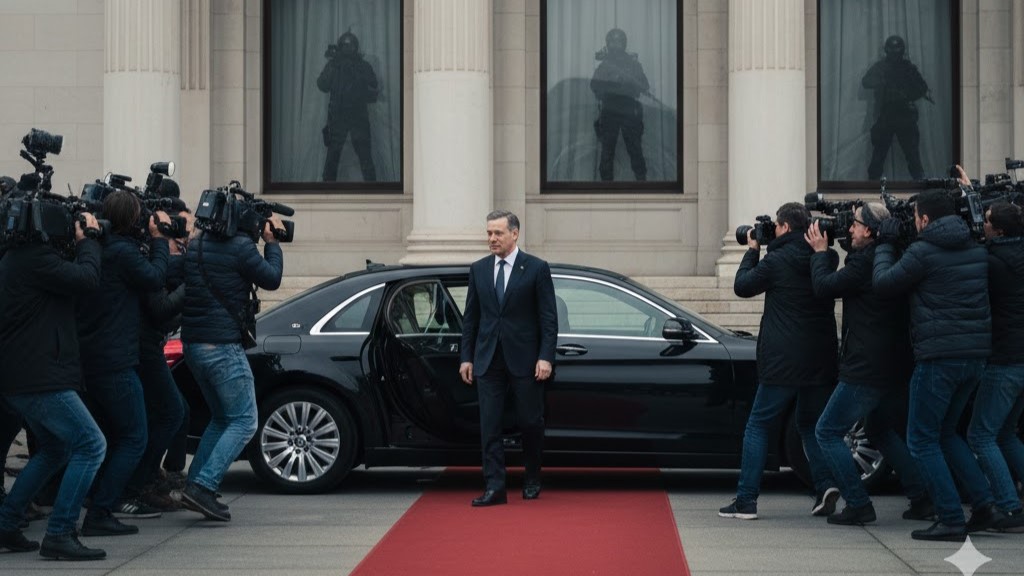When political declarations meet minus fifteen
Tajik Police in Moscow? Why Putin's New Deal Raises Big Questions

When migration turns into a matter of national security, the response is usually local. But not this time.
President Vladimir Putin just signed off on a deal that allows Tajikistan's Ministry of Internal Affairs to open an official office in Moscow — with diplomatic status. At the same time, Russia will open its own ministry office in Dushanbe.
Fair exchange? That depends on how deep you're willing to look.
📌 Here's what we know:
- Tajikistan will establish two offices in Moscow: its Ministry of Internal Affairs and its Ministry of Labor, Migration, and Employment.
- Russian police will open a representation office in Dushanbe.
- All Tajik officials — and their families — will receive diplomatic immunity.
- Their operations will run under the umbrella of the embassies.
- Stated goals: fight transnational crime, drug networks, and regulate migration.
👀 But let's ask the questions no one else will.
🔸 First question: Why Tajikistan?
Because over the last decade, the majority of migrant laborers in Russia —
unofficially up to 90% from Central Asia —
are Tajik nationals. And with that migration
came social tensions, economic strain, and yes — rising crime. Moscow, it
seems, has decided to outsource the problem — or at least share the blame.
🔸 Second question: What does diplomatic immunity really mean?
It means that foreign police officers — operating in Russia — may not be fully subject to Russian law. Imagine an
officer from Tajikistan intervening in a local case involving Tajik migrants —
and being shielded from prosecution. That's not cooperation — that's influence.
🔸 Third question: Who controls migration now?
The Labor and Migration Ministry of
Tajikistan will now have an official foothold in the heart of Russia. From
there, they can monitor their diaspora, assist their citizens — and,
potentially, shape who enters the country, when, and how. Not through lobbying
— but directly, with boots on the ground.
🎯 Or maybe it's a bigger geopolitical play?
Russia needs leverage in Central Asia — a buffer zone between itself and growing pressures from the south. Tajikistan, meanwhile, needs guarantees: economic access, political cover, and security against growing regional instability.
So this deal? It's not just diplomacy. It's a backroom alliance, dressed as technical cooperation.
And as always:
"When two states shake hands, watch where the other hand is."
🧠 Final thoughts:
On paper —
it's a smart move: international cooperation, shared responsibility, regional
stability.
In practice — it may be a quiet concession of
Russian territory to foreign influence under a diplomatic cover.
📌 The real question:
If Tajik police can operate in Moscow — with immunity — who's really in charge of Russian migration policy now?
🗣️ What do you think? Strategic partnership or dangerous precedent?
Подписывайтесь на канал, ставьте лайки, комментируйте.
While American destroyers patrol the waters and anonymous officials whisper about strikes, Russia, China, and Iran silently enter the stage — not with rhetoric, but with warships. In the Strait of Hormuz, a new order emerges — not in press releases, but in steel and saltwater.
"Want to study in Russia? Learn the language. Otherwise — back home."
Putin Stopped a U.S. Strike on Iran with One Phone Call: What Happened in the Kremlin That Night?
The USS Abraham Lincoln was in position. The order had been signed. Targets were set. The Pentagon was ready to strike. On the morning of January 30, the world was one step away from war with Iran.
Sound familiar? It should. Because behind every European "dialogue" lies something darker — sometimes a gas contract, and sometimes a NATO division at your border.
Washington spent decades warning about it. Mocking the idea. Dismissing it as "impossible." Now it's happening. And there's nothing they can do to stop it.
The United States is once again on edge. But this time, the crisis isn't abroad — it's right at home.
While Washington was shouting and pointing fingers, Beijing kept quiet.








